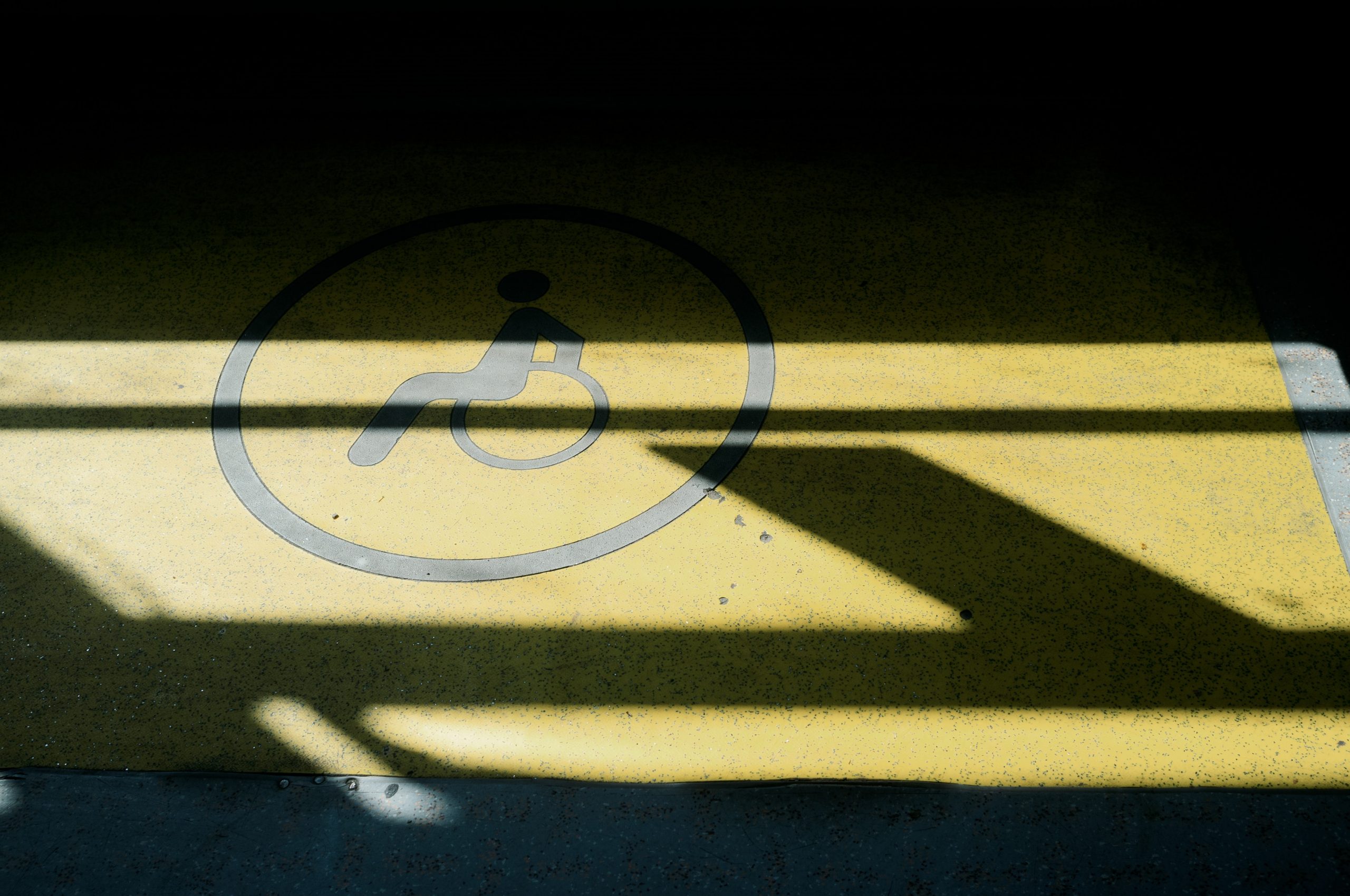Today, over 61 million Americans live with at least one disability, according to the CDC’s Morbidity and Mortality Weekly Report. Having a disability refers to the state of being handicapped, disadvantaged or impaired from normal functioning in some way. Disabled people often identify as a person with disabilities, for the term is person-centered rather than disease-centered.
In order for someone to be considered disabled, their individual functioning must be significantly impaired relative to everyone else. They must deviate from the average measure of an individual’s or group’s functioning or otherwise experience an impediment to their day-to-day activities. This includes having a reduced ability to engage in expected duties or fulfill, for example, work or school obligations.
On college university campuses, disability access services have been implemented to offer disability-centric treatment to students in need of additional accommodations, but in the process, colleges often ask students to volunteer their health history or submit records that prove or substantiate their disability. While the Americans with Disabilities Act (ADA) protects students from having to reveal classified information to their professors and other staff, some unprofessional faculty members often apply pressure to students, subtly coercing them or explicitly encouraging them to reveal their disability or alert them of the medical diagnosis that warrants their accommodations, lest they penalize them for medical absences or unexpected health disturbances. The student’s accommodations needs are often neglected or challenged at every corner.
Professors might even fail to honor their accommodations in spite of having substantial proof of a student’s disabilities, erroneously claiming it is unfair to other students to “make exceptions for them,” as I have experienced. This has caused me to feel hopeless and to subsequently deny or refuse accommodations.
When speaking of my chronic emesis, I have been told that if I have more than two absences, my grade will be lowered by a full letter grade, never mind the fact that this condition is documented within the office of disability services. The idea that a student would be punished for missing class due to uncontrollable vomiting is outrageous. During my second to last semester, I was literally vomiting blood for weeks, lost 10 pounds in about two weeks, suffered severe dehydration and missed four classes, yet, I was more concerned about not missing class and making up missed work than dying because one of my professors made me feel like school was more important than the value of my life. That’s absurd.
This is a heinous abuse of disability rights, as the ADA prohibits discrimination against persons with disabilities and forbids retaliation when people enforce their rights. Failure to provide people who identify as disabled access and amenities to much-needed services is considered a violation of the ADA.
I do not understand this bias or refusal to make classrooms and other public spaces on college campuses accessible. The ADA, passed in 1990, states: “Under the ADA guidelines a person with a disability is one with a physical, mental, emotional or chronic health impairment that substantially limits one or more major life activity such as caring for oneself, performing manual tasks, walking, seeing, hearing, speaking, breathing, learning, and working.”
The Americans with Disabilities Act is somewhat limiting, in the sense that it defines a person with a disability as an individual who is significantly hindered or handicapped in at least one “major life activity.” This definition does not encompass a wide range of disabilities, including invisible disability, a condition not easily observable, detectable via testing methods, or hyper-visible to others (i.e. fibromyalgia). Worse, it also does not consider that not everyone can afford to be formally diagnosed with a disability or find the means to acquire a burden of evidence, especially if medical services are largely inaccessible to them, or if they lack a means of transportation.
Persons with disabilities would not be able to receive accommodations if their illness wasn’t documented, and even then, I have witnessed many of my fellow disabled people be denied accommodations if the university rules that they lack sufficient paperwork or adequate proof of hindrance in their everyday life that would necessitate disability support and access services.
Being disabled is not about asking for special treatment; it’s about advocating for yourself and asking for recognition of your unique circumstances. Need-based services are about restoring dignity to yourself and your personhood, not about assigning advantages. Anyone who misunderstands this is woefully ignorant.
Students with disabilities are often stigmatized as lazy or undedicated, and accused of having extra help or additional support than students without disabilities. Some professors treat them poorly, possessing the misguided and prejudiced attitude that such students receive preferential treatment because they have accommodations in place to support their needs, when, in reality, such accommodations only exist to equalize the playing field. I am a person with disabilities, medical, chronic or degenerative and psychiatric, and I have had to fight harder for them to be acknowledged in college than I have ever had to outside of this social institution.
I am asked to submit excessive paperwork and disclosure forms about the extent of my disability, its severity and symptoms, the frequency and duration of my condition, the initial date of my diagnosis, my last date of clinical contact, the limitations the disability imposes upon my academic performance, the functional impact of my disability, my current medications and long-term medication plan, and a clinician’s assessment of my disability and my compliance with my medical plan. In addition to rating my compliance, a clinician must certify my disability is a hindrance, provide a description of the instruments and procedures used to diagnose me, establish the results of my diagnosis and confirm whether or not I’m a threat to myself or others or reveal my history of hospitalization, if any. This person is then tasked to suggest appropriate accommodations for me, which my school can decide to enforce or not, independently of my own wishes.
Essentially, a licensed health care provider has to fill out forms on my behalf and advocate for me professionally, and even then, I cannot personally receive potential services unless the university decides that I am disabled enough to meet the aforementioned criteria. Furthermore, I am asked to provide a diagnosis and description of my disability and even provide the full ICD code. This is on top of the fact that, irrespective of whether or not I decide to pursue disability-related accommodation services at school, when enrolling in a semester, I, like all students, am required to submit a confidential form about my mental health history that asks: “Have you ever been hospitalized for a psychiatric disorder?” (specify dates); “Do you intend to begin or continue psychotherapy during college?” (yes or no); “If so, have you identified a provider with whom you will be working?”
Then, on that same form, I am asked, “Have you experienced any of the following: depression, an anxiety disorder, self-injury such as cutting or burning, an eating disorder, bipolar disorder, obsessive-compulsive disorder, an anger management issue, PTSD, an attention disorder, psychotic symptoms, a suicide attempt, suicidal thoughts, a sleep disorder, panic disorder, a learning disability, a nonverbal learning disability or autism spectrum disorder/Asperger, an anti-social conduct disorder, alcohol or substance abuse or dependence, a thought disorder” (no, past, or current)?
The last two questions I’m given are: “Are you now taking or have you ever taken medication for any of the above? If so, please list” and “Describe any other medical or mental health problems or conditions that have required psychological care.”
This is an extensive amount of paperwork that requires intensive focus, completion and the signature and verification of a medical professional, so needless to say, my disabilities are serious and impossible to fake. Therefore, the severity of my disability needs should not be stigmatized and doubted. The process, alone, of registering as a person with disabilities on a college campus is exhaustive and relentless. The problem is, this isn’t enough. I provide all of this invasive information, and still, the believability of my medical conditions is called into question. When I receive an exemption for a class presentation because I suffer from a debilitating panic disorder, I am told that I should be able to present in front of the class because “everyone struggles with anxiety, it’s just nerves.”
When I inform my professor that I experience panic attacks and preemptively remove myself from a potentially triggering situation, I am belittled because “that isn’t a valid excuse” or “everyone gets nervous sometimes,” and “you just need to practice more.” The validity of my disability is challenged. My basic needs and accommodations are threatened.
Once, after feeling a panic attack incoming when assigned to a group presentation in spite of my accommodations, I reminded my professor of my predicament, to which she replied: “I don’t understand how you can raise your hand in class but can’t give a presentation. I mean, what’s the difference?” This is a form of ableism (disability prejudice). I felt like I had to jump through hoops for people to actually recognize and legitimize my mental health disability, but this didn’t make sense — isn’t that what my paperwork was for?
When students feel pressured to declare their disabilities or reveal their medical health history to avoid being persecuted or penalized, they are being discriminated against. This might motivate them to hide their disabilities. The university school system makes it easy to penalize persons with disabilities because such people have to meet certain qualifiers, and there are people in this world foolish enough to believe that you can just look at someone else and determine whether or not they are sick when you can’t, in actuality, especially considering the fact that most chronic illnesses and disabilities are invisible. We must work to erase the stigma that surrounds disability in college education.
















